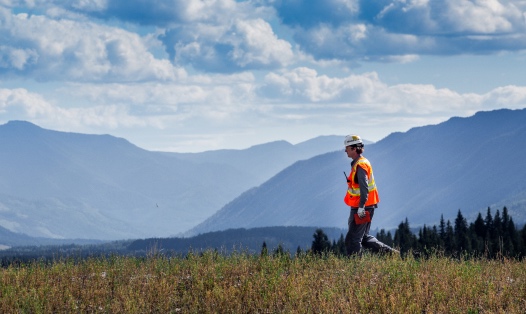While the term circular economy may be relatively new, Teck has long embraced the fundamentals of circular thinking: reducing waste and pollution, keeping products in use, and helping to improve the natural environment where we operate.
Looking ahead, there are increasingly stringent regulatory and permit requirements on the horizon, making it more difficult to bring newly extracted resources to the economy. There are also growing expectations from customers, investors and civil society that products are responsibly made and sourced, coupled with higher demand for transparency when it comes to the traceability of mined materials.
While the mining industry is feeling these pressures, to date few companies have capitalized on the opportunities from the global shift towards circular economy, and factored the associated risks into their business strategy.
Connect sat down with Katie Fedosenko, Manager, Sustainability Reporting, to learn more about circular economy, why this is an important sustainability focus area for Teck, and what that means for our operations and our people.
Circular Economy 101: Three Things to Know

1. A circular economy is a system aimed at minimizing waste and maximizing resources. This is contrasted with a linear economy, where resources are extracted or harvested and manufactured into a product that is used and that in the end becomes waste.
2. There are three principles of a circular economy—design out waste and pollution, keep products in use, and regenerate natural systems.
3. While often thought of as an increase in recycling or reuse, it is much more: circular economy represents a fundamental shift in the way business and society is structured, to maximize the responsible use of resources while meeting growing demand.

